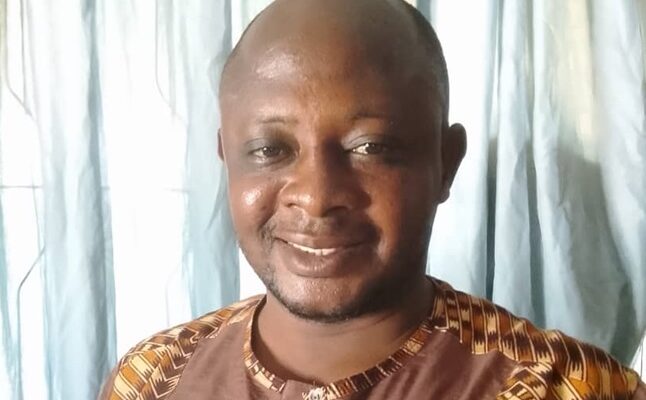In a world intoxicated by appearances and obsessed with perfection, a quiet uprising is underway—led by women once deemed broken. From the dust-laden corners of Nigerian stadiums to the polished corridors of global influence, disabled women are ripping apart the myths that once confined them. They are not pleading for sympathy. They are commanding respect. What society once labeled a weakness, they’ve turned into their fiercest strength.
During my NYSC days in Imo State, I met two unforgettable women—wheelchair-bound, yet warrior-hearted. Ify and Chichi were paralyzed by wrong injections, they had every excuse to quit, yet none was found on their lips. They were training as weightlifters, determined to represent Nigeria on the Olympic stage. Homeless, they slept under the cracked shadows of a stadium’s hollow terraces—no big mattress, no mercy, just raw resilience and fire-forged faith. When I asked them about love, their reply stunned me: “We would rather marry a struggling man with integrity than sell our souls to wealthy predators who only want to exploit our pain.” They had been hunted by rich suitors craving their bodies but not their worth. They chose poverty over perversion. Their purity amid pressure, their refusal to bow, became a sermon I’ve never forgotten.
They were women of steel sleeping on cement. With no comfort, they still carried vision. With no applause, they still moved mountains. They made it clear—true strength is not built in gyms. It’s forged in the crucible of affliction.
Elsewhere, Maryanne Diamond, born blind, refused to be sidelined. She didn’t wait for the world to adjust—she made it. As President of the World Blind Union, she became a global force, pushing for policy reforms, digital inclusivity, and educational access. “I wasn’t looking for sympathy,” she declared. “I was looking for change.” And she got it. Governments shifted. Corporations rewired. Institutions bent.
In Nigeria, Olaoluwa Abagun didn’t let her degenerative muscle condition mute her power. She became a lawyer, a human rights advocate, and a mouthpiece for disabled women. Through her platform, Girl Pride Circle, she educates, legislates, and liberates. “My body may have limits, but my voice does not,” she once thundered. That voice has broken chains in courtrooms, communities, and the cages built by culture.
Across the Atlantic, Keely Cat-Wells stared chronic illness in the face—and built an empire. Rejected as a dancer due to her condition, she launched C Talent, a firm rewriting the script on disability in entertainment. “I didn’t just want access—I wanted transformation,” she said. And she did just that. Her movement is not about inclusion. It’s about disruption.
These aren’t anomalies—they are archetypes. Their lives preach a truth this generation needs to hear: disability is not deficiency. It is divine design in disguise. Pastor Chris Oyakhilome once said, “When the anointing comes upon your limitations, they become your assets.” These women didn’t wait for healing. They walked—no, they commanded—in wholeness.
Prophet TB Joshua once remarked, “The eyes of faith see beyond the present.” That’s what these women possess—vision that is not confined to the visible. They saw greatness where others saw gloom. They embraced destiny when others handed them despair. They endured public rejection and private trauma—and emerged as oracles of strength.
Yet the world remains hostile. According to the World Health Organization, over a billion people live with disabilities. Yet they are still systemically shut out—excluded from classrooms, boardrooms, and ballot boxes. Sidewalks lack ramps. Schools lack sign language. Employers lack vision. What we lack is not infrastructure—it’s conscience.
We applaud strength in athletes, but ignore it in women who lift themselves out of pain daily without cameras. We immortalize perfect bodies, but demonize broken ones. But these women? They have turned wheelchairs into chariots. They have taken what was meant to bury them and built altars of purpose.
Bishop David Oyedepo once declared, “You don’t need to look like it to become it. You only need to believe it.” These women didn’t look like champions. But they carried the code of champions in their spirit. They stood tall without ever standing. They moved nations without moving an inch. They ran spiritual marathons that left even the strongest breathless.
They don’t want pity. They demand partnership. They don’t want applause. They require platforms. And they don’t need healing to be whole. They are already enough. What the world calls broken, heaven calls battle-tested.
Let us stop dressing our ignorance in pity. These women have never been weak. They have only ever been underestimated. In their hands, affliction became fire. Pain became prophecy. Suffering became strategy.
They are not disabled.
They are destiny-carriers.
And until the world acknowledges their fire, it will continue to burn with ignorance. Because from the places we ignore, history often births its fiercest voices. And from the silence of women pushed aside, destiny roars.
– Inah Boniface Ocholi writes from Ayah – Igalamela/Odolu LGA, Kogi state.
08152094428 (SMS Only)




